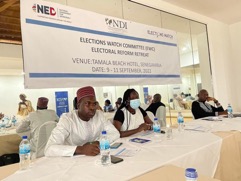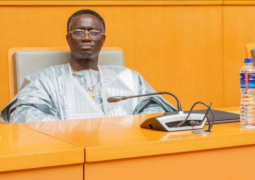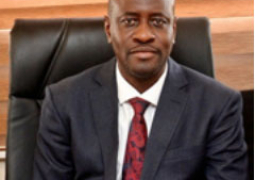
The Election Watch Committee (EWC), a partnership of Peace Ambassadors – The Gambia, ACTIVISTA and the National Youth Parliament, is financed with assistance from the National Endowment for Democracy (NED) and technical support from the National Democratic Institute for International Affairs (NDI).
The EWC observed political party congresses, voter registration, pre-election campaigns in 2021 Presidential and 2022 National Assembly Elections and issued public reports and recommendations after every observation.
However, the last retreat was meant to identify electoral reform priorities based on the recommendations made to various stakeholders including the Independent Electoral Commission (IEC), Political Parties, Civil Society Organizations (CSOs), Security Forces, the Media and public as well as plan a roadmap that the EWC will use to advocate for and promote electoral reforms in The Gambia ahead of upcoming electoral cycles.
Lala Touray, Program Officer at the National Democratic Institute for International Affairs, said the recommendations are aimed at strengthening the country's electoral cycle and processes.
She added that based on the observations, the key reforms will not just be for IEC, but all relevant stakeholders especially on issues that can strengthen and/or enhance greater participation in the electoral processes.
The reforms, she added, will also promote collective efforts from all stakeholders involved in electoral processes, to ensure they adopt measures that are recognised as global best practices.
Meanwhile, the EWC during a Stakeholders’ Dialogue on its Final Observation Report among other things, recommended that the Independent Electoral Commission (IEC) publish all election results, including the 2021 Presidential election and 2022 National Assembly election results on its website.
It also recommended that IEC enhance the training of its staff in making sure they adequately understand election procedures, rules and regulations including the role of observers in the process to avoid any confusion.
It also recommended that IEC alongside civil society, conduct widespread voter information campaigns sufficiently ahead of the voter registration and the display and appeal process to ensure that citizens are aware of the processes and how to participate.
The EWC further recommended that IEC work in collaboration with CSOs, the Inter-Party Committee (IPC) and lawmakers to review the Electoral Act and to address the widespread use of attestations by citizens, as well as institute legislation and an independent oversight agency campaign financing.
The EWC also recommends that IEC ensure polling locations are accessible to all voters, particularly the elderly and the physically challenged.
In addition, it takes additional measures to make the process more accessible by allocating all polling streams on flatland for People With Disabilities (PWDs), written material for the hearing impaired and listing the candidates’ names in Braille on the ballot drums for visually impaired voters.





